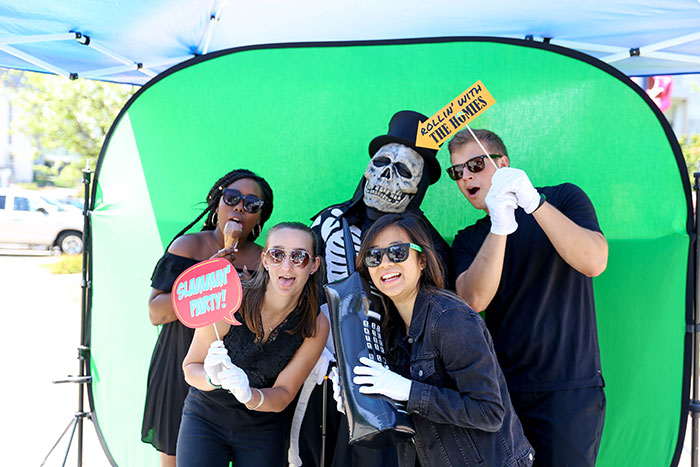International students are an essential part of the Emory undergraduate community. At our Atlanta campus,…
Finding Your Community Starts with You
Once again, you’re a small fish in a big pond.
We go through the motions during orientation week of our first year in college, making the same conversation for the 100th time with some person we feel like we’ve met, but don’t remember how or when. We see countless faces and names as we desperately search for a committed group or at least someone we can click with, because the last thing we want is to be seen eating alone at the dining hall. Our first year of college is an overwhelming, brand new chapter: a milestone year where we realize the extent to which we took the comfort of familiarity for granted, the weighted impact of first impressions, and what it truly means to socialize, especially.

My biggest takeaway from my first year of college: everyone is different, and so are you. Everyone will be coming in with experiences and a set of values that may be different from your own. We should set aside our preconceived notions about certain groups in order to maximize opportunity to appreciate and welcome interesting stories. Choosing to limit ourselves from certain populations of campus only detriments our capacity to build relationships with others. Going to events with an open mindset and actively participating in activities that are outside our comfort zones can also inaugurate circumstances where we can encounter people we find commonalities with. As a short term solution, having an explorative, unbarred mindset can enumerate chances for us to interact and, hopefully, find a community we can associate with.

But as we navigate through the frenzy of freshman year, we may find ourselves jumping through hoops to satisfy this chronic pressure to find people to stick with, at least for the time being. Oftentimes, we try to force something that isn’t there: we choose to place ourselves in uncomfortable settings in order to be a part of something; we find ourselves feeling extremely awkward in distressing situations that we normally wouldn’t be a part of. But this internal pressure can detract from the quality and meaning of a relationship. There’s no doubt that many of what first-year students experience are intermittent feelings of loneliness, though these sentiments may be masked in efforts to seem okay or “normal”. It can be challenging to find commonalities and establish deeper, meaningful connections with others due to the different backgrounds, varied social and cultural ways of life, and sheer size of our campus.

If you really know who you are, you know what to look for and what to nurture in meaningful relationships, as well as the kind of community you want to surround yourself with. But during this passage from the little to big leagues, we’re presumably maturing, exploring our interests, and developing a more robust sense of our individualities. Instead of exerting energy into finding belonging in our relationships or community, perhaps we should focus our attention on understanding and developing ourselves, where we can cultivate self-belonging and self-acceptance before reaching out to others to fill that void. It’s natural to feel like a small fish in a big, big pond, and experience unwarranted discouragement when transitioning into a new environment and stage of our lives. But we shouldn’t let these intermediaries dishearten us from making the most out of our college experience. When thinking about the kind of community we want to invest in during our first year, we should reflect upon whether we want our primary sense of belonging and acceptance to derive from an internal provenance rather than an external source.

Emily Chen 21C
Psychology and Visual Arts
Walnut, California
Don’t hesitate to connect with us by posting a comment to this blog, tweeting us @emoryadmission, or emailing us at admission@emory.edu. We look forward to hearing from you!



This Post Has 0 Comments